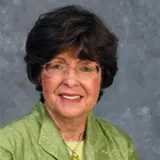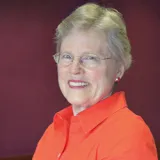Voyager Sopris Learning EDVIEW360 Podcast Series
2026 EDWEB THE SCIENCE OF WRITING WEEK - Empowering Young Writers: Using POW To Build Confidence and Skill
Released: Thursday, February 12, 2026
Join teacher, author, and writing instruction specialist Lindsay Kemeny for a practical, classroom-tested session about helping young students become successful writers. Drawing from her deep experience in early literacy and her work with Self-Regulated Strategy Development (SRSD), Kemeny introduces educators to the POW writing strategy—Plan, Organize, Write—and shows how it can dramatically improve student outcomes. Her approach is grounded in evidence-based practices and informed by years of working directly with students, designing instructional routines that foster both skill and confidence.
Through real-world examples from a first grade classroom, participants will see how daily and weekly writing structures can be implemented to support planning, organization, and self-regulation. These strategies are designed to be accessible, engaging, and immediately applicable—helping educators create writing environments where students feel empowered to express themselves and grow.
What You’ll Learn
- How to implement the POW strategy using SRSD
- Instructional routines for teaching the writing process in early elementary classrooms
- Strategies for helping students organize and write informational paragraphs
- Techniques for fostering positive attitudes and confidence in young writers
- Real-world examples of lesson structures that support writing growth
2026 EDWEB THE SCIENCE OF WRITING WEEK - Adolescent Writing and The Writing Rope Framework: Evidence-Based Teaching Suggestions for Grades 5–12
Released: Wednesday, February 11, 2026
Writing is a powerful tool for learning, especially for adolescent students navigating increasingly complex academic demands. During this webinar, literacy expert and author Joan Sedita presents practical, evidence-based strategies drawn from her Writing Rope framework to help educators strengthen writing instruction in grades 5–12. Focusing on three key strands—Syntax, Text Structure, and Critical Thinking—Sedita offers actionable guidance for teaching advanced sentence construction, genre-specific text organization, and written responses to text across content areas.
Participants will explore how writing supports comprehension, retention, and academic success, particularly in middle and high school settings. With a focus on instructional routines that build fluency and confidence, Sedita shares tools for note-taking, summarizing, and planning written responses that deepen student engagement and elevate writing outcomes. Whether you’re a classroom teacher, literacy coach, or curriculum leader, this session will help you integrate writing as a vehicle for learning across disciplines.
What You’ll Learn
- How to teach advanced sentence writing using the Syntax strand of The Writing Rope
- Strategies for helping students organize informational, argumentative, and narrative writing using text structure
- Techniques for guiding students to respond to text in writing across subject areas
- Tools for note-taking, summarizing, and pre-writing that support critical thinking
- How to apply The Writing Rope framework to strengthen adolescent writing instruction

2026 EDWEB THE SCIENCE OF WRITING WEEK -Writing That Works: 5 Evidence-Based Practices for Literacy Success
Released: Tuesday, February 10, 2026
Discover the five research-backed practices that help students become confident, capable, and fluent writers.
Description:
Join internationally recognized literacy expert Dr. Steve Graham for a dynamic session that translates decades of writing research into practical classroom strategies. Drawing from multiple meta-analyses and studies of exceptional literacy teachers, Dr. Graham presents a comprehensive framework built around five essential practices: students need to write regularly, they need support while writing, writing must be explicitly taught, reading and writing must be connected, and educators must encourage risk-taking and creativity.
This webinar is designed for educators and education leaders who want to move beyond buzzwords and toward measurable impact. Dr. Graham will share actionable strategies—such as goal setting, feedback, pre-writing routines, and collaborative learning—that can be implemented immediately to strengthen writing instruction across grade levels. Whether you’re refining your literacy block or designing a districtwide writing initiative, this session will help you build classrooms where writing truly works.
What You’ll Learn
- The five evidence-based practices that form the foundation of effective writing instruction
- How to integrate writing with reading and learning to deepen comprehension and critical thinking
- Practical strategies for supporting students as they write, including feedback, goal setting, and collaboration
- Why fostering risk-taking and creativity is essential for building classrooms where writers flourish
- How to apply research findings to daily lesson structures that accelerate student growth

10 Reading Maxims That Matter: What We Know About Learning to Read
Join trailblazing literacy researcher Dr. Reid Lyon for a high-impact edWebinar that distills 50 years of reading science into ten essential maxims every educator and district leader should know.
Drawing from thousands of studies across neuroscience, psychology, linguistics, and education, Dr. Lyon unpacks the foundational principles that drive effective reading instruction—and illuminate what it takes to support all learners, including those with dyslexia, language differences, and instructional gaps. This session is designed to bridge research and practice, equipping you with the clarity and confidence to lead literacy improvement in your school or district.
Viewers learn:
- Why the science undergirding the Science of Reading can be trusted
- Why leaders, teachers, and the public must communicate and collaborate using a common professional language
- Why reading must be explicitly taught—and why speech development alone isn’t enough
- How decoding, fluency, and comprehension work together to build strong readers
- What the research says about differentiated instruction and the limits of three cueing
This recorded edWebinar is of interest to PreK-12 teachers, librarians, school leaders, and district leaders.
Powerful Phonics Instruction: Strategies for Success in Any Setting
Released: Wednesday, September 10, 2025
Small-group phonics instruction doesn’t have to be overwhelming for teachers and administrators. During this session, we’ll walk through a simple, repeatable three-part framework that helps you plan and deliver powerful phonics instruction in any setting—whether you’re in the classroom, managing reading teachers, or tutoring one-on-one.
Join us as Amie Burkholder, reading instructor, author, and literacy expert, shows you how to:
Build in a cumulative review to boost mastery and confidence
Teach new skills explicitly and systematically
Guide students to apply what they’ve learned through real reading and writing
Packed with ready-to-use examples, weekly planning tips, and ideas for streamlining your routines, this professional development will help you spend less time planning and more time teaching, while ensuring your students get exactly what they need to grow.
Five Steps to Changing Reading Outcomes for Middle School Students
Released: Thursday, August 14, 2025
Dr. Jason DeHart has been helping older readers overcome literacy challenges and become proficient readers, leading them to success across curriculum and beyond. Join us for Dr. DeHart’s engaging presentation, which will focus on five essential steps you need to emphasize to help middle school students who might be struggling to read at grade level.
You’ll learn about new ideas and strategies, all of which are flexible enough to be adapted to meet a variety of student needs, and stem from a teacher and researcher whose work has been centered around solving the mystery of how to help older readers further develop literacy.
You’ll leave this presentation with a new understanding of how to help older readers who struggle. Dr. DeHart will discuss:
- How To Make the Most Meaningful Use of Data—Emphasizing both the summative and formative data collected in the classroom
- Setting Stellar Goals—Advocating for the concept of growth for all, including those at the top and who have much growing to do
- Practice What We Know—Using science of reading research and strategies in teaching, including a focus on authentic reading activities, a knowledge of the process, and specific strategies that work (graphic organizers, annotations, etc.)
- Celebrate the Milestones—Why building a culture of celebration of students and of the written word, including publishing as a class, connecting with authors, and connecting in the literacy community, is essential to engagement and helping students feel that they are not working in isolation
We hope you’ll join us!

Instructional Guidelines for Orthographic Mapping: Examining Ways to Teach Literacy
Join this interesting and informative presentation led by a true literacy legend, Dr. Linnea Ehri, a renowned researcher and respected leader in the teaching of reading. Dr. Ehri will discuss her theory of orthographic mapping, which involves the formation of letter-sound connections to bond the spellings, pronunciations, and meanings of specific words in memory and explains how children learn to read words by sight, to spell words from memory, and to acquire vocabulary words from print.
You’ll learn from the master herself as she explains how her theory lends itself to effective ways to teach reading. Her presentation is instructive, applicable, and inspiring for all educators who want to better understand reading instruction and improve their students’ outcomes.
Attendees will learn:
- How sight words are learned and the course of acquisition
- What skills to teach to enable sight-word learning
- How to teach grapheme-phoneme relations, phonemic awareness, decoding, and spelling skills
- Ways to improve vocabulary learning
- How readers store the spellings of sight words in memory and the research behind grapheme-phoneme relations
- The skills needed to perform orthographic mapping
- And much more!
We hope you’ll join us as we learn from a true changemaker in literacy instruction.
Five Essential Strategies for Distinguishing Core Instruction From Intervention
Join us for an engaging webinar exploring the critical differences between core instruction and intervention within a Multi-Tiered System of Supports (MTSS) framework. Core instruction provides universal, evidence-based, grade-level teaching for all students, while intervention targets specific skill gaps for selected learners through intensive, data-driven practices. Discover how these components work together to create a comprehensive system that ensures equity and addresses diverse student needs. We’ll cover five key strategies for distinguishing core from intervention, including determining what students need, pacing, focus, audience, and the use of evidence-based curricula. Don’t miss this opportunity to enhance your understanding and improve student outcomes.
Attendees will learn:
- The key differences between core instruction and intervention, including focus, audience, and intensity
- Why more core instruction does not replace the need for intervention
- How core instruction ensures equity through evidence-based, grade-level teaching for all students
- The role of interventions in addressing specific skill gaps using targeted, data-driven strategies
- Practical insights about integrating universal screeners and diagnostic assessments to identify and support student needs
- Strategies for aligning evidence-based curricula to maximize the effectiveness of both core instruction and intervention
Illuminating Text From the Inside Out: Using Text Structure To Improve Comprehension for Older Readers
What’s the best approach to teach comprehension?
What makes expository text so challenging?
The use of text structure to improve comprehension is a powerful, yet often underutilized approach to help students integrate the big ideas across text. During this presentation—aimed at students who may be struggling in grades 4 and beyond—you’ll learn to connect research with immediate application about teaching various text structures to scaffold students’ ability to incorporate relevant ideas and content within narrative and expository texts.
Defining text structure, the research behind it, and cognitive integration theory—“We learn better if we have a frame or structure to attach that learning to”—helps all students, including those in middle school and beyond, succeed with reading comprehension and fluency.
Join this fascinating and applicable presentation during which our literacy expert shares the research and helpful Knowledge Acquisition and Transformation (KAT) framework that can be a game changer for so many striving readers.
Attendees will:
- Connect the research base about general cognitive learning to text structure specifically
- Understand the significance of teaching text structure in an explicit and consistent manner to improve comprehension
- Receive information and resources to incorporate text structure learning into current classroom practices

What Happened to Using Data to Inform Instruction and Intervention in Grades K–2?
Join us for this informative and applicable presentation during which our presenter, renown researcher and literacy expert Dr. Barbara Foorman, will share the facts, research, and strategies surrounding using data to inform classroom instruction and guide intervention. As Dr. Foorman explains the use of data to identify strengths and weaknesses in students as they learn to read, she will share the critical nature of informed approaches that help educators truly change student outcomes.
Attendees will learn:
- What language and reading constructs predict reading success and how they can be measured reliably.
- The definitions of certain assessment terms (sensitivity/specificity; positive/negative; predictive/predictive power) and how they relate to diagnostic utility.
- The most-asked questions educators ask about assessment systems.
- The challenges of assessment—and possible solutions.
- How data from formative assessment can inform evidence-based literacy practices to differentiate instruction in the classroom and in intervention.
- Why intervention is necessary beyond additional core curriculum.
Add your email here to sign up for EDVIEW360 blogs, webinars, and podcasts. We'll send you an email when new posts and episodes are published.






